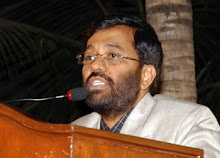The state government faced a visible reversal when the High Court reversed its pro Muslim reservation. The government may seek solace from the observations of the High Court which faulted the Backward Classes Commission more than it faulted the government. The fact remains that it seriously tested the three time aborted attempt to get Muslims – a huge local vote-bank into the luxury of constitutional backwardness. It was the YSR government that hit upon the original idea of carving out for the Muslims in the state a special position of backwardness. A paradox stares in the face. On the one hand, claim is made to the factum that India’s secular credentials are unquestionable. How then in 60 years did the community carve out for itself certain backward communities?
Even the politics of reservation has unfortunately taken the driver’s seat in operative politics. Even before the details of the seven judge bench judgement was known, protestors took to the street and politicians got into the act of issuing statements. Nothing surprising. This trend returns with nauseating regularity in Indian politics.
A quick peep at the journey this far would reveal that the YSR government in 2004 came up with its first ambitious. If ill-fated step of providing reservations to the entire Muslim community on the ground that they constituted a Backward Class ‘en bloc’. A bench of the High Court with a strength of 5 set aside the government action. It however made clear that the government had the power to provide reservations for Muslims provided the entire community was identified as Backward.
The government obviously lost sight – bonafide or otherwise to the fact that the Supreme Court had earlier in the famous Mandal case ruled that such recommendation for inclusion or exclusion must necessarily stem from a specially constituted statutory body. Also the High Court in 2004 ruled that the material before the government in coming to the conclusion of the community being backward was unscientific and unreliable.
The Backward Class Commission was reconstituted after the non performing Puttaswamy regime was over. Justice Dalwa Subramanyam of the High Court was called in to head the Commission. He and the other committee members went through the motions of an enquiry of identifying the Backward Class and recommended their inclusion.
The theatrics of enquiry, recommendation, acceptance failed judicial scrutiny. A five judge bench yet again quashed the action of the state government. Among other things the court visited and interpreted for the government the requirements as spelt out by the Supreme Court in the Mandal case. The said issue is pending final adjudication in the Apex Court.
With the race at the herstings hotting up and vote-banks garnering muscle, the government was perhaps pushed by political necessity into its hat-trick of hasty action. Yet again, a reference was made to the Backward Class Commission to tailor recommendations in line with the requirement of law. The enthusiastic Backward Class Commission faulted again. This time the government ensured that the quota slice was within the permissible limits. The government toned down the beneficial act from 5% to 4%. The fate of the agenda, however, was the same. On 8 February, a 7 judge bench with a 5-2 majority yet again faulted the Backward Class Commission. The action was described as ‘mechanical and perfunctory’. The bench headed by Chief Justice A R Dave, faulted the methodology of the Backward Class Commission. A survey should have been conducted by the Commission either by collecting data with regard to the entire population or by adopting a scientific sampling method, Justice Dave said. It was deplorable that the Commission was not even aware of the total population of the various groups of Muslims who have been included in the Group E for the purpose of reservations, he observed.
The consistency of official error is appalling. To the uninformed it may appear as if the judiciary is insensitive to the social issue of large scale backwardness in the Muslim community. If there be such an opinion, nothing can be farther from the truth. Time and again the court has upheld executive power and faulted the methodology. After two rounds of hard fought litigation, it is clear that the original judicial intent of having to create a Commission has come a cropper. The original intent was to create a body insulated from political motive and strengthened with expertise. The Commission appears insensitive to its calling. The government has been caught more than once with its pants down. Not a pleasant experience. In a separate development, the very constitution of the Dalwa Subramanyam Commission has been called in question. K Kondal Rao, Convenor of AP BC Mitrulu in a petition before the court complains neither the Chairman nor its members Ch. Panduranga, Challa Raghuram and N Bangara Raju have the required wherewithal to reside in the Commission
Two issues stare out: one the efficiency of the Commission and two the bonafides in the intended proactive stance of the government. Those who do not learn from history are condemned to repeat it. This government feels committed to history!
The dust and din will take some time to clear. Another round of litigation is in the offing. The scene shifts from Hyderabad to Delhi leaving behind an aching question as to whether the deserving tool are suffering because of the non constitutional enthusiasm exhibited by the powers that be. The dogged refusal to learn the principles set out by the judicial wing will haunt the executive. Bad physics is bound to derail motion. The resultant inertia in the social dynamics of the community is the first casualty. If the government does not get its act together, there may be other casualties. The problem cursed Rosaiah administration will do well to place proper strategy over poor politics.
L. Ravichander.
Subscribe to:
Post Comments (Atom)

No comments:
Post a Comment